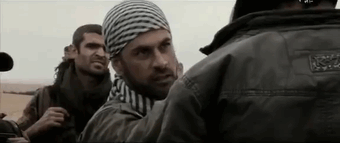Photo










Xazîla Ez Li Kurdistanê Bûma, Ser Çîyaye Zagrosê, Kandili, Cudî ê, Botanî, Dersimî, Ava Munzurê, Gola Vanê û Gola Feraşînê Ce Hevala Bûma.
387 notes
·
View notes
Note
Zaza's are Kurds, just a different dialect that's very distinct!
The biggest dialect was the Kurmanji dialect, which was split at around 1500 AD, dividing into "Northern Kurmanji" and "Southern Kurmanji". Southern Kurmanji is more commonly regarded to as Sorani and Northern Kurmanji as Badhini Kurmanji or just Kurmanji. This is why Sorani and (Badhini) Kurmanji speakers can understand each other with less strain.
Zaza on the other hand is a dialect from the Pahlawani strain of Kurdish. Pahlawani and Kurmanji diverged off from each other sometime between 200 BC-1 AD. Pahlawani dialects include Gurani strands of Kurdish as well, including Laki and Awramani.
To sum it all up, this is why Pahlawani strains of Kurdish like Zaza and Gurani can seem so different from Sorani and (Badhini) Kurmanji, it mainly depends on when the strains of Kurdish diverged off from each other and formed distinct dialects/accents of their own. :)
Are Zaza considered to be Kurdish? My dad is Zaza and he says we are but our language is an own language that is not really related to kurdisj languages. I am kind of confused? But history showed that zaza did alot of revolts that helped other kurdish people as well (sry if it doesn't make sense, I am not good at english)
Zazas are Kurds
65 notes
·
View notes
Photo


Kurdish YPG Fighter with an captured ISIS Terrorist (x)
1K notes
·
View notes
Photo

Kurdish couple with child. Northern Kurdistan. 1968. Photographer: Fulvio Roiter
186 notes
·
View notes
Photo









êzîdîs in lalish 2008-2014 (beyondbordersphotography)
353 notes
·
View notes
Photo


“If we must die, we die defending our rights."
Martyr Musa (25), a former PKK Guerilla and one of the best YPG Snipers, killed 300 - 450 ISIS Terrorists. The Legend of Kobane Musa (real name Hardem) has fallen during a fight with ISIS Terrorists on April 14, 2015 in Kobane.
"Every time a problem came up, Musa was the man to call first. He would fight day and night, and after a while ISIS learned about his feat. No ISIS Sniper could defeat him, many of us are alive because of him. If ever a true hero was born, that’s Hardem. Hero of Kobane. After the city was liberated, he joined the village operations, kept pushing the enemy away, sometimes taking entire villages by himself. He trained most of the snipers in Kobanê. I always looked up to him, he would always sit in a low position, talk with a low tone. When there was less food, he would eat less to leave more to others.”
527 notes
·
View notes
Photo










The Êzîdîs, 2002
They are indigenous people from the Mid East. Êzîdîs also call god Ezda, “the one who created me”. Êzîdî means Worshipper of god. One of the oldest religions of the world. The origin dates back to 2,000 BC in Mesopotamia. They believe in an absolute god and seven archangels - central role plays Melek Taus as the chief archangel. One is born an Êzîdî, both parents must be Êzîdîs. The central sanctuary is Lalish; the grave of Sheikh Adi, the Êzîdîs’ holiest personage. There is no holy scripture, trained dignitiaries pass on the contents.
1K notes
·
View notes
Photo

Kurdish female fighters from the 70s in Rojhelati Kurdistan.
288 notes
·
View notes
Photo









Jiyan û Bext.
Gundê Betwata-Başûrê Kurdistanê / 1965-1970 © William Carter
538 notes
·
View notes

















































